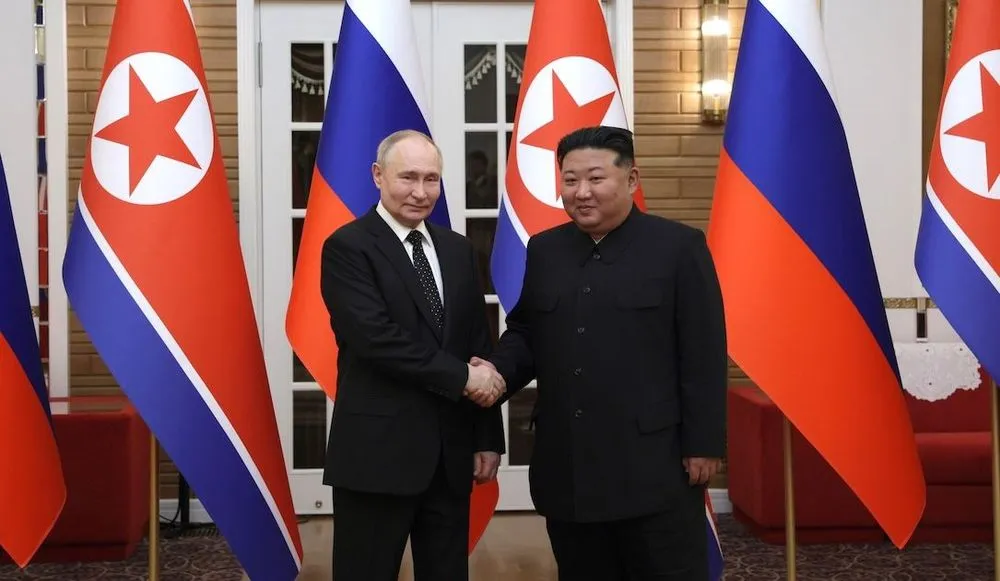North Korea switches TV broadcasts from Chinese satellite to Russian
North Korea has switched state television broadcasts to a Russian satellite instead of a Chinese one, significantly reducing the number of people who can watch them.
This change was discovered by South Korea’s national broadcaster KBS, which relies on North Korea's Korean Central Television, KCTV, as a window into the isolated country.
“Normally, this would be the time when broadcasting would be in full swing, but all you can see is a black screen. The satellite signal has suddenly been lost,” said a KBS reporter during a news program on Monday, pointing to a black screen.
South Korea’s Ministry of Unification, which aims to promote a single sovereign state on the Korean peninsula, said on Monday that North Korea has stopped using a Chinese satellite and is now transmitting broadcasts via a Russian satellite, which has limited reception in some areas of South Korea.
KBS reported that signals from Russian satellites overlap with certain domestic frequency bands, making the transmissions difficult to receive in South Korea.
It is unclear why North Korea has decided to switch to a Russian satellite, but local media reports suggest it may be linked to the recent strain in North Korea-China relations. In addition, the current Chinese satellite available to Pyongyang is nearing the end of its lifespan, expected in 2027.
The switch also comes less than two weeks after Russian President Vladimir Putin’s visit to North Korea earlier in June, during which he signed a strategic partnership agreement with leader Kim Jong Un. The deal deepens relations between the two countries, including their military-technical cooperation.
Choosing Moscow over Beijing?
KCTV has been relayed in high definition via Beijing’s Chinasat-12 since 2020 via a signal that covered all of Asia, according to the report by North Korea Tech, a U.S.-based blog authored by British journalist Martyn Williams that covers technology developments in North Korea.
KCTV has occasionally been late on the air before, likely due to maintenance or technical reasons, “but Monday’s outage is exceptional in that it lasted all day,” the report said.
A South Korean satellite dish service provider told Reuters that the KCTV signal has switched to the Russian satellite Express 103. The KCTV signal also appeared on the Express 103 satellite around the time of Putin’s visit, according to data from LyngSat, a website that lists satellite broadcasts worldwide.
Express 103 is owned and operated by Russia’s state satellite communications company. It was launched in 2020 and is expected to remain in orbit for a total of 15 years. Express 103 covers Russia and its near neighbors “but totally cuts out much of Asia, Europe and Africa,” according to North Korea Tech.
It is unclear if the switch is temporary or permanent.
“The Kremlin may be aiding North Korean efforts to conceal information from South Korea and other Western allies,” said the U.S. nonprofit the Institute for the Study of War in its latest report.
Earlier this month, several European countries condemned Russian interference in their satellite systems. In particular, Ukraine, France, Sweden, the Netherlands and Luxembourg complained about the Kremlin’s alleged satellite disruptions that have affected GPS signals and television channels.
Daryna Antoniuk
is a reporter for Recorded Future News based in Ukraine. She writes about cybersecurity startups, cyberattacks in Eastern Europe and the state of the cyberwar between Ukraine and Russia. She previously was a tech reporter for Forbes Ukraine. Her work has also been published at Sifted, The Kyiv Independent and The Kyiv Post.



